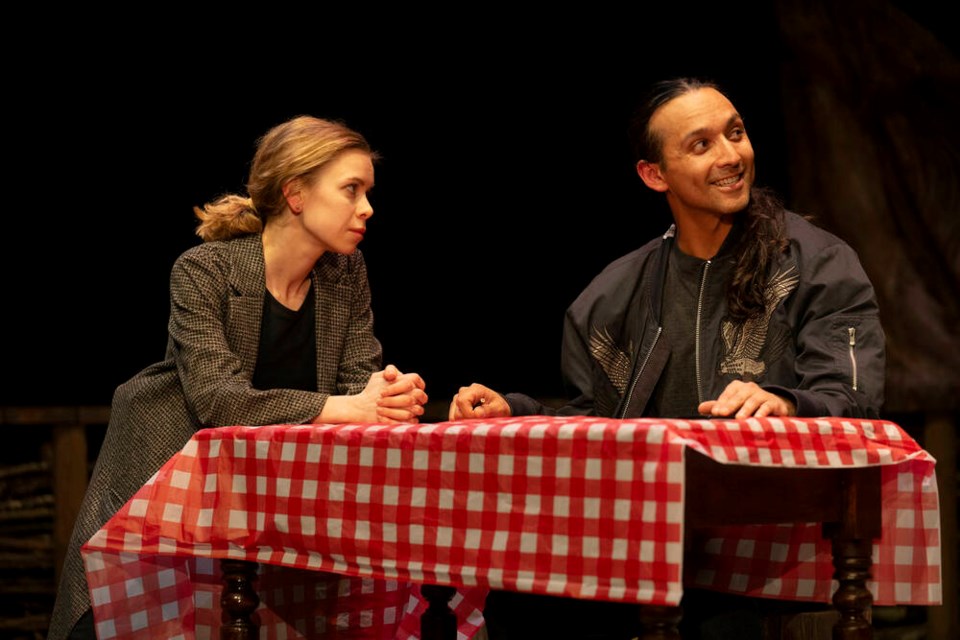YAGA
Where: The Belfry, 1291 Gladstone Ave.
When: Sept. 14–Oct. 8
Tickets: Pay What You Want Tickets, available at 250-385-6815 or online at tickets.belfry.bc.ca
Jani Lauzon was asked by the Belfry Theatre in March to direct their upcoming production of Kat Sandler’s Yaga, which meant she would have a far shorter window for preparation than she is accustomed to having.
That she accepted immediately says a lot about Sandler’s award-winning work, if not the Belfry specifically.
“Normally, when I’m directing, I have a year to sit with the play and digest it,” Lauzon said. “But I was really looking forward to my first time directing on the West Coast, and in this environment. The Belfry is a beautiful theatre, so I jumped at the chance.”
A true multi-disciplinarian, the Toronto-based Lauzon acts, writes and directs (and when she’s not attending to any of the aforementioned pursuits, she sings in a jazz trio). Her resume reflects her myriad abilities — she’s a nine-time Dora Mavor Moore nominee for acting; a three-time Juno Award nominee for music; and a Gemini Award winner for puppeteering — but Lauzon said directing is what makes the best use of her talents.
“That is where all of my multi-disciplinary things come together. I’m able to look at plays from all different points of view, which is the beautiful thing about being an artist. When you apply them to a directorial vision, you’ve got a pulse on the different aspects of how to put a piece together.”
Lauzon said her experience was put to the test on Yaga (pronounced ya-ha), a play that incorporates elements of a popular Slavic folk fable about a matriarchal trickster. She worked with her ensemble to find ways of handling Sandler’s complicated play, a comedy-thriller-whodunit that required several location and costume changes. The three cast members (Nicholas Nahwegahbow, Tracey Nepinak, and Anastasiia Ziurkalova) each play several characters, further complicating matters.
“Kat definitely has a very specific kind of writing, so you try to honour that to the best of your ability as a director. But I’ve allowed myself to bring my own vision of the play to it as well, so it’s a bit of marriage between the two.”
Central to the play is the folkloric character of Baba Yaga, a wicked witch/feminine ogress whose machinations and motivations have evolved over several centuries. The subject of a Slavic folktale, she both helps and hinders — an anti-hero, in many respects. Sandler used these and other character traits as a conduit for a wider discussion within Yaga, regarding women and power and personal choice. That is what drew Lauzon to the small-town murder mystery and fairy tale.
“Who was (Baba Yaga) before the children’s books, and what was the role of women in early 12th Century Eastern Europe? A lot of research that goes way back offers a much different depiction of who Baba Yaga is and what her function was in society. There are aspects of what Kat has written that really speak to that.”
Baba Yaga was also a caregiver, but that side of her personality is not often highlighted in the history books. Nonetheless, it is vital to understanding her story. “She gives men comprehension,” Lauzon said with a laugh, “and it is their choice as to what they do with that.”



